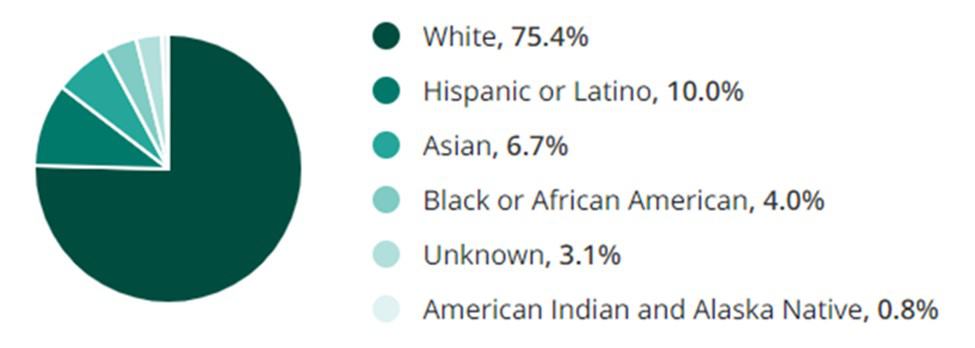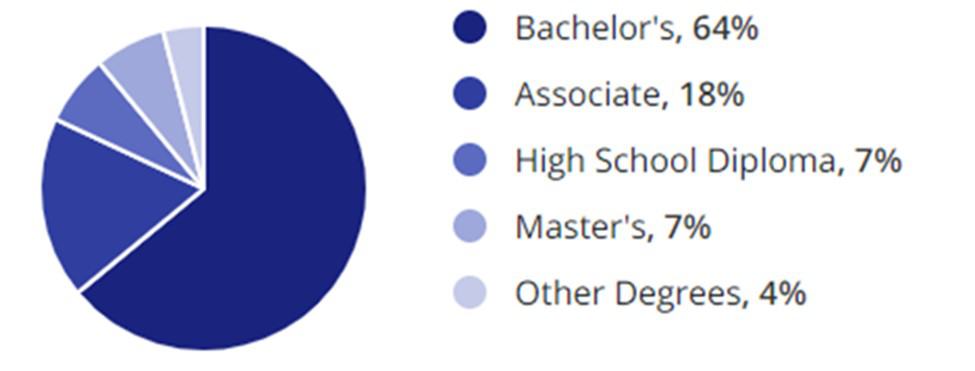Welcome to the ultimate guide to Purchasing-procurement jobs, a field that lies at the heart of business success and efficiency. Whether you’re a recent grad considering your career options or an experienced professional looking to pivot or advance, you’ve come to the right place. This guide is your beacon through the exciting world of purchasing and procurement jobs, a dynamic and indispensable sector to organizations worldwide.
Purchasing-procurement is more than just buying goods and services; it’s about strategic sourcing, negotiating contracts, managing supplier relationships, and much more. It requires a blend of analytical thinking, negotiation skills, and a keen market understanding. With businesses increasingly recognizing the importance of sustainable and ethical sourcing, the role of procurement professionals is becoming more strategic and impactful than ever.
Through this guide, you’ll explore the educational paths that can lead you into this career, dive into the various areas of expertise, and understand the demographics shaping purchasing procurement in the United States. We’ll walk you through salary and hiring trends, break down the essential skills for success, and offer a glimpse into the future of purchasing-procurement jobs. We’ll answer frequently asked questions and provide additional resources to help jumpstart or advance your career.
Whether you’re drawn to the thrill of negotiation, the challenge of strategic sourcing, or the opportunity to drive sustainability in supply chains, a career in purchasing-procurement promises diversity, challenge, and growth. Let this guide be your first step toward understanding the vast opportunities in the procurement world. Ready to explore what your future could hold in this vital field? Let’s get started.
Educational Requirements
If you’re eyeing purchasing-procurement jobs, let’s talk about where you need to start: education. Deciding into the procurement world requires at least a bachelor’s degree. Relevant fields of study include business, finance, supply chain management, or something closely related.
But it’s not just about having a degree. In this competitive field, certifications can give you an edge. Consider earning credentials like the Certified Professional in Supply Management (CPSM) or Certified Purchasing Professional (CPP). These are more than just acronyms to add to your resume—they signify to employers that you’ve got specialized knowledge and skills in purchasing-procurement jobs.
Remember that learning doesn’t stop once you land a job. The procurement landscape constantly evolves, and staying on top of the latest trends and technologies is critical. Seeking additional courses or training, especially in e-procurement systems or sustainable procurement practices, can help propel your career forward.
Ready to dive deeper into procurement? Get inspired by exploring The Ultimate Guide to Strategy-Planning Jobs, which taps into similar skills and offers thrilling challenges.
Areas of Expertise
Purchasing-procurement jobs are vast and filled with diverse opportunities. Depending on your interests, skills, and educational background, you can specialize in various areas within this field. Here’s a snapshot of some critical areas of expertise:
- Strategic Sourcing: involves developing strategies to secure the best products and services at the most favorable prices. It’s about understanding market trends and leveraging them in negotiations.
- Contract Management: Professionals in this area manage contracts from creation to completion. This includes ensuring compliance and fostering strong supplier relationships.
- Supplier Relationship Management (SRM): Building and maintaining healthy relationships with suppliers is crucial. SRM specialists work on collaboration and communication to ensure mutual benefit.
- Procurement Analytics: Data is robust. Experts in procurement analytics use it to make informed decisions, identify trends, and optimize procurement processes.
- E-Procurement Systems: Technology plays a significant role in modern procurement. Specialists in e-procurement systems implement and manage online purchasing systems that streamline operations and increase efficiency.
- Global Procurement: For those interested in a global challenge, this area involves sourcing goods and services worldwide, navigating international regulations, and managing cross-cultural relationships.
Choosing a specialization can lead to more targeted procurement specialist jobs, enabling you to focus on your passion and skills. It’s also worth considering how these expertise areas align with various industries like information technology, manufacturing, or healthcare. A niche makes your skillset more attractive and leads to higher job satisfaction and success.
Demographics in the United States
The demographics of purchasing-procurement jobs in the U.S. reflect a diverse workforce. Understanding the representation across ethnicity, gender, and age can provide insight into the current landscape and the importance of fostering diversity in the workplace.
Ethnicity/Race:
- White: 75.4%
- Hispanic or Latino: 10%
- Asian: 6.7%
- Black or African American: 4%
- Unknown: 3%
- Native American and Alaska Native: 0.8%
The purchasing-procurement jobs field aims to value diversity, acknowledging that varied perspectives enhance negotiation strategies and supplier relationships. For businesses striving to mirror their diverse market, continuing to develop a more balanced procurement team that better represents the broader demographic landscape is a crucial step forward.

Gender:
- Female: 56.1%
- Male: 43.9%
The gender distribution shows a relatively balanced landscape, reflecting ongoing efforts toward gender equality across levels. This balance is crucial for fostering inclusive environments where unique viewpoints lead to innovation.

Age:
The procurement sector attracts professionals across a broad age spectrum, with the overwhelming average age being about 40 years. The need for a presence of both young professionals and seasoned experts is highlighted by the dynamic nature of the field:
- Young professionals bring fresh insights and adaptability.
- Experienced individuals contribute profound negotiation and strategic skills.
The age diversity within procurement enriches the profession, allowing for a blend of innovative thinking and wisdom born of experience. Understanding and embracing the multigenerational makeup of the workforce is essential. Consider the benefits of multigenerational workplace dynamics for leveraging this diversity.

Salary Trends
When it comes to purchasing-procurement jobs, salary is a hot topic. The compensation in this field can vary significantly based on factors such as job role, industry focus, experience, and geographic location. However, gaining insight into the current trends can help set realistic expectations and career goals.
Salary Range:
- Entry-level positions start around $50,000 annually.
- Mid-career procurement specialists can earn between $70,000 and $90,000.
- Senior roles, such as procurement managers and purchasing directors, often see salaries upwards of $130,000.
It’s important to note that specialized roles, including those focusing on global procurement or e-procurement systems, might command higher salaries due to the niche expertise required.
Factors Influencing Salary:
- Experience: More years in the field generally lead to higher salaries.
- Education and Certifications: Advanced degrees and professional certifications can boost earning potential.
- Industry: Salaries vary widely, with sectors like technology and pharmaceuticals often offering higher compensation.
- Location: Geographic location affects salary due to the cost of living and demand for procurement professionals in the area.
To navigate the diverse salary landscape in the purchasing-procurement field, staying informed about procurement managers and remote procurement jobs, including their associated pay scales, can help you make strategic career choices. Actively seeking professional development opportunities and considering roles in high-demand areas can also enhance salary prospects.
Hiring Trends
The demand for talented professionals in purchasing procurement is subject to the ebb and flow of the global economy, technological advances, and shifts in business strategies. Nonetheless, specific trends have emerged, painting a picture of the future for those considering a career in this dynamic field.
- Increased Demand for Tech-Savvy Professionals: As e-procurement technologies and digital transformation initiatives continue to take center stage, professionals with an apt for technology are becoming increasingly valuable. Skills in managing e-procurement systems, utilizing procurement analytics, and understanding cybersecurity within supply chains are sought after.
- Focus on Sustainability and Ethics: Businesses prioritize sustainable and ethical sourcing to meet consumer demands and comply with regulations. This shift creates opportunities for procurement professionals who can navigate the complexities of sustainable procurement practices and supplier ethics.
- Emphasis on Soft Skills: Negotiation, communication, and relationship management remain critical. The ability to foster strong supplier relationships and collaborate across departments and with external partners is essential to success in any procurement role.
These trends indicate an evolution in the procurement profession and highlight areas for current professionals and newcomers to focus on their development. Adapting to these trends can help secure a place in the next generation of procurement leaders.
Education Levels
Entering the field of purchasing-procurement jobs often starts with solid educational foundations. While the sector values experience and skills, the academic background of procurement professionals tells a story of diversity and specialized training.
Minimum Requirements:
- A bachelor’s degree is frequently the entry point into purchasing-procurement careers.
- Popular subjects include Business Administration, Supply Chain Management, Finance, and Economics.
Advancing with Certifications:
- Professional certifications such as the Certified Purchasing Professional (CPP) and Certified Professional in Supply Management (CPSM) are highly regarded.
- These certifications can demonstrate expertise and commitment to the field, often leading to better job opportunities and higher salaries.
Role of Further Education:
- MBA or master’s degrees in related fields can set candidates apart, particularly for strategic or managerial roles.
- Specialized training in areas like contract law, international trade, or sustainability can provide an edge in niche areas of procurement.
The educational landscape for procurement professionals is as varied as their roles. Understanding the importance of continuous learning and professional development is critical. Whether through formal education, certifications, or on-the-job training, advancing knowledge is crucial in keeping pace with the evolving demands of the purchasing-procurement sector.

Skills in Demand
Within the fast-evolving Purchasing-Procurement landscape, specific skills stand out for their ability to drive success and innovation. As organizations seek to optimize their procurement processes and navigate complex global supply chains, professionals with a blend of technical, analytical, and soft skills are in high demand.
Technical and Analytical Skills:
- E-Procurement Technologies: Proficiency with digital procurement platforms and tools is necessary as more organizations move towards digital operations.
- Data Analysis: The ability to analyze procurement data to identify trends, optimize costs, and improve efficiency is highly valued.
- Financial Acumen: Understanding financial metrics and how procurement activities impact the bottom line is crucial.
Soft Skills:
- Negotiation: Effective negotiation skills can lead to better terms and cost savings for the company.
- Communication: Clear and concise written and verbal communication ensures alignment within teams and with suppliers.
- Relationship Management: Building and maintaining solid relationships with suppliers and internal stakeholders is critical to a successful procurement strategy.
Emerging Skills:
- Sustainability: Understanding and implementing sustainable procurement practices is becoming increasingly important.
- Global Sourcing: Skills in managing international suppliers and navigating global trade regulations are essential for global procurement.
Staying ahead in purchasing-procurement means honing these in-demand skills and continuously developing new ones in response to industry changes. Embracing a mindset of lifelong learning and adaptability is essential for those seeking to make a significant impact in this dynamic profession.
Current & Future Purchasing-Procurement Jobs Outlook
The landscape of purchasing-procurement jobs is constantly evolving. The dynamics of global markets, technological advancements, and organizational needs for efficiency and ethical sourcing shape the future of this profession. Here’s what the current and future outlook might look like for individuals pursuing careers in purchasing and procurement.
Current Landscape:
- The demand for purchasing-procurement professionals remains solid as organizations continually seek to optimize their supply chains.
- The rise of technology in procurement processes, such as e-procurement and digital supply chain management, has created a need for new skill sets.
- The focus on sustainable and ethical sourcing practices has increased the value of professionals who can navigate these complexities.
Future Trends:
- Growing Importance of Sustainability: The emphasis on sustainability and ethical procurement is expected to increase, driving demand for specialists in this area.
- Technology and Innovation: Integrating A.I., machine learning, and blockchain in procurement processes will likely create new roles and require advanced technical skills.
- Globalization: As companies continue to source globally, proficiency in global procurement strategies and international trade will be crucial.
Job Market Growth:
Overall, the purchasing-procurement sector is projected to experience steady growth. With businesses recognizing the impact of effective procurement strategies on their bottom lines, the demand for skilled professionals is set to rise. The future looks promising for those willing to adapt to technological changes and focus on strategic sourcing, sustainable practices, and global markets.
Staying informed and adaptable, upgrading skills, and understanding the global landscape will be vital to thriving in this career. As the field progresses, the opportunities for purchasing-procurement professionals will only expand, marking a bright future for those entering or advancing within this domain.
FAQ’s
What Degree Do I Need for a Career in Purchasing-Procurement?
A bachelor’s degree in business, finance, supply chain management, or a related field is typically required. Pursuing specific certifications like CPSM or CPP can further enhance your qualifications.
What Skills Are Essential for Success in Purchasing-Procurement?
Essential skills include negotiation, supplier relationship management, data analysis, and understanding e-procurement systems. Soft skills like communication are equally important.
Is Experience in Global Procurement Valuable?
Absolutely. Given the interconnectedness of global markets, experience in international procurement is precious. It entails understanding complex regulations, cultural nuances, and international market trends.
How Can I Advance My Career in Purchasing-Procurement?
Staying updated with the latest industry trends, pursuing advanced degrees or certifications, and gaining expertise in high-demand areas like sustainability and e-procurement can help advance your career.
What’s the Job Outlook for Purchasing-Procurement Professionals?
The sector is expected to grow steadily, with an increased emphasis on sustainability, technology, and global sourcing. Professionals who adapt and specialize in these areas will find ample opportunities.
Additional Resources
To deepen your understanding of purchasing-procurement jobs and stay up-to-date with industry trends, consider exploring these helpful resources:
- The Institute for Supply Management (ISM) offers information, including certification details, industry news, and networking opportunities for procurement professionals.
- For those interested in the global aspect of procurement, the Chartered Institute of Procurement & Supply (CIPS) provides global certifications, resources, and a community focused on procurement and supply management.
- The Association for Supply Chain Management (ASCM) is another excellent source of certification programs, training, and supply chain and procurement networking opportunities.
- Enhance your knowledge of sustainability in procurement by visiting the Sustainable Purchasing Leadership Council (SPLC). It offers guidance, case studies, and tools to incorporate sustainability into purchasing practices.
- For those looking to dive into academic papers and research, Google Scholar can be a valuable resource for finding the latest studies and articles on procurement and supply chain management topics.
These resources can enrich your expertise, expand your professional network, and keep you informed about purchasing-procurement developments. Whether you’re a newcomer or an experienced professional, continuous learning is critical to staying competitive and making informed decisions in your career.
Conclusion
Purchasing-procurement jobs offer a dynamic and rewarding career path for those interested in playing a crucial role in the success and efficiency of businesses across various industries. From navigating global supply chains to leveraging cutting-edge technologies and contributing to sustainable business practices, the opportunities in this field are vast and varied. Armed with the proper education, certifications, and a commitment to continuous learning and skill development, professionals in purchasing and procurement are well-positioned to thrive.
As the demands and expectations of procurement roles continue to evolve, staying informed, adaptable, and proactive in your professional growth is vital. Join Diversity Employment to connect with a network of professionals, access a diverse job board, and find resources tailored to your career advancement. Together, we can foster a more inclusive and dynamic procurement industry.
Embrace the journey of professional growth in purchasing-procurement, and let Diversity Employment be your partner along the way. Your dream job awaits!




